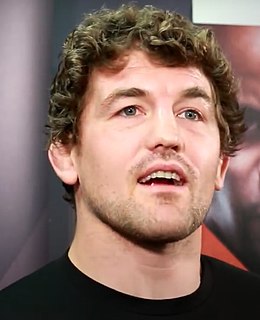A Quote by Ruth Bader Ginsburg
In truth, I did enjoy the benefits of a Harvard connection.
Related Quotes
That said, there are a few clear factors that determine the potential of a university to reach the highest levels of excellence. In the case of Harvard University, it was true that by the time of its tercentenary (300th anniversary of its founding) in 1936, Harvard had already achieved a reputation as a world-class institution. Harvard did not have the stature that it does today.
Public image is extremely important in American society and I observed personally that the Presidency of John F. Kennedy did much in the public mind for Harvard. Harvard was an excellent school before Kennedy, but Kennedy embodied a new vision for the United States: a leader who caught the world's imagination and that reflected on his alma mater, Harvard.
Back in Kansas City, I associated Harvard with sort of gnarly guys who wore capes for effect in a kind of Oscar Wilde scene. Even though I also knew there was such a thing as the Harvard-Yale game, I was still a little surprised that Harvard had a football team. I just assumed if there were such a thing as gay people, that they were nothing like us. Little did I know that probably half the swim team at Yale was gay.
[My father] was a banker. He was the president of the Cambridge Trust Company, the head of the trust department, and he taught classes at the Harvard Business School. And he was a member of the Harvard Faculty Club, which I am, too, because what I did is... I have the same name as my father, only Jr.
I would not say that Harvard possesses any sort of absolute dominance. And I personally do not take the rankings of schools all that seriously. However, I think that Harvard's global visibility increased significantly in the 1930s and 1940s and that the new commitment to excellence at Harvard spread to other institutions.
I actually remember very specifically the night that I launched Facebook at Harvard. I used to go out to get pizza with a friend who I did all my computer science homework with. And I remember talking to him and saying I am so happy we have this at Harvard because now our community can be connected but one day someone is going to build this for the world.
If you take a look at places like Harvard, it's striking. In the early ,50s, I think there were a handful of Jewish professors, three or four. But by the 1960s, there were Jewish deans and administrators. In fact, one of the reasons why MIT became a great university was because they admitted Jews whereas Harvard did not.
I wrote a letter to Harvard, explaining that I was having difficulty deciding between it and the University of Pennsylvania. Could I come and visit? Years later, the dean of students at Harvard told me that my letter had been posted in the dean’s office for the amusement of the staff. Thus did I learn the measure of institutional arrogance.































